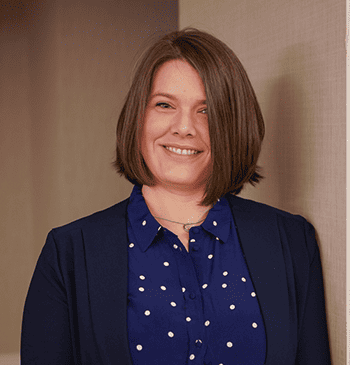
More Banks Use Retention Bonuses to Keep Key Staff
As baby boomers continue to retire from the workforce, bank leaders are increasingly looking to retention bonuses as a means to bridge the gap when key executives ponder retirement.
Almost a third of the board members, CEOs, human resources officers and other executives responding to Bank Director’s 2023 Compensation Survey in March and April say their bank has offered retention bonuses to key staff as an incentive to delay retirement. That represented an increase from 21% who said as much in last year’s survey. Privately-held and mutual banks were also significantly more likely to leverage this type of incentive.
Boards can use a retention bonus as a tool to extend the succession planning process. For example, a board might design a package to entice a chief executive to stay four more years, instead of three, to buy a little more time in choosing and preparing that person’s successor.
“It’s usually a good tool for those banks that know they have somebody retiring, they’ve had those conversations, and they don’t want to risk them leaving early,” says Scott Petty, managing partner of the financial institutions practice at Chartwell Partners, which sponsored the Compensation Survey. “They want them to delay to give [the board] enough time. It can take up to six months to figure that out, or maybe even a year.”

There’s not necessarily one right way to design a retention bonus, but there are some best practices for using these tools. And their use should also prompt discussions in the boardroom about the succession planning process.
First, a retention bonus should be significant enough to make it worth that person’s while, says Sean O’Neal, a partner with Chartwell Partners. A good starting point would be half of the executive’s total compensation package. He adds that the bank could pay out that retention bonus in stages – half now and half at retirement, for example.
“Staging it out is an option that needs to be considered versus one lump sum, because all of a sudden, they can just gear their retirement around that one date,” he says.
Publicly held companies, accountable to proxy advisory firms and investors, might consider tying a retention grant to the firm’s financial performance in some way, says Shaun Bisman, principal at Compensation Advisory Partners. This year, the proxy advisory firms Glass Lewis & Co. and Institutional Shareholder Services issued guidance recommending that shareholders vote against executive compensation packages when retention grants were not tied to performance metrics.
“When you make these retention awards, it’s really important to evaluate the impact,” Bisman says. “If you make these awards, are people staying? Are they leaving? Are we achieving the desired outcomes?”
Further down the ranks, some bankers say they have had success using other tools besides retention bonuses. Amy Roberts, chief human resources officer of PeoplesBank in Holyoke, Massachusetts, starts with a conversation with the prospective retiree to understand what that individual really wants. Sometimes, she finds that the employee wants more free time or flexibility, and in some cases, they don’t want to have to wait until full retirement to travel, for instance.
In those instances, Roberts says the $3.8 billion banking subsidiary of PeoplesBancorp, MHC has had some success working out alternative scheduling arrangements for key staff who are nearing retirement. PeoplesBank has also retained some staff as consultants, particularly when there’s a project involved that would benefit from that staffer’s continued expertise.
It’s unclear whether more banks will decide to employ retention bonuses in the year ahead. The murky economic forecast, as well as pressure by shareholders, could mean that larger, publicly traded companies think twice about awarding retention bonuses, as they have done this year, Bisman says.
On the other hand, the U.S. workforce is graying more broadly, as baby boomers – a generation that spans roughly 20 years – continue to retire. Petty and O’Neal have both seen more chief executives notify their boards of their intent to retire earlier than 65; these CEOs have enough money to retire earlier than anticipated, and some simply don’t want to stick around for the next downturn.
Some key roles could also be more affected by coming retirements than others, depending on the skill set required of the job, says O’Neal, particularly for the CFO or technical leadership roles in compliance and information technology.
In a perfect world, the board would never be caught off guard when a valued executive signals their intent to retire by a certain date, and they would generally have one or two candidates in line for the position. While the board may be only responsible for hiring the CEO, Petty says boards should also confer with the CEO about the rest of the executive team and what their timeline for retirement could look like.
Ultimately, if an employee really wants to leave, there may not be much the bank can do to persuade them to stay. A bonus only has so much allure if retirement is what an individual ultimately wants.
“I definitely don’t want to be in a position where I’m not ready [with a next-in-line candidate], so I’m trying to force this person to stick around,” Roberts says. “That’s not fair to them.”
Talent issues like these will be covered during Bank Director’s Bank Board Training Forum in Nashville Sept. 11-12, 2023.


